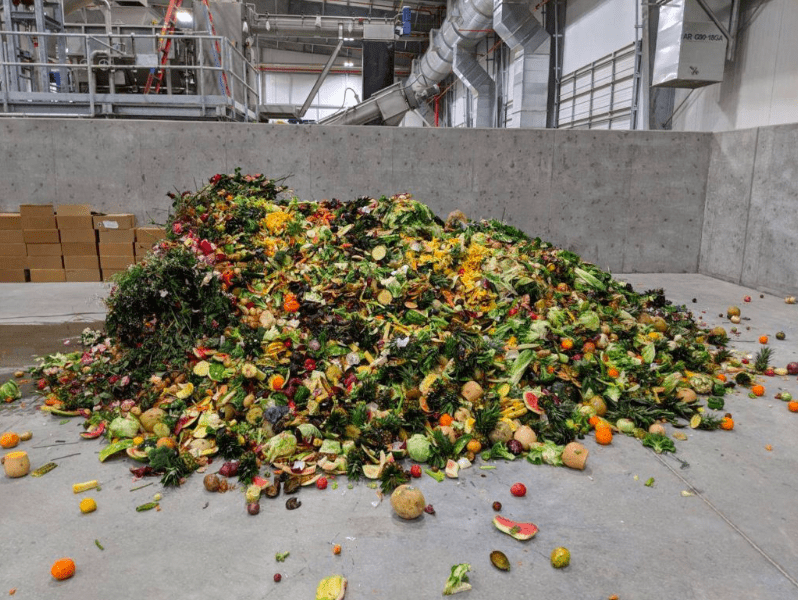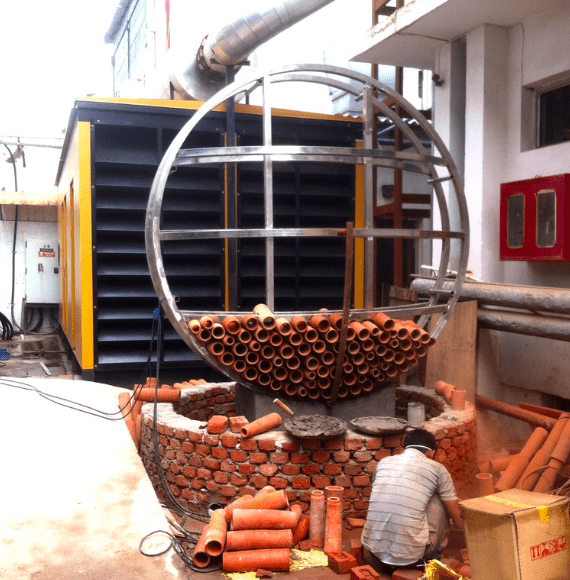Welcome back to The Fixer, our weekly briefing of solutions reported elsewhere. This week: a CPR dummy that finally represents the “other” 50 percent of humanity. Plus, leftovers become natural gas in Utah, and an ancient Egyptian cooling system finds its way to a New Delhi design studio.
Cardiac abreast
If you’re a woman who requires CPR, you’re less likely to receive the lifesaving assist than a man. The reason is as obvious as it is absurd: it’s all about your breasts.
Only 39 percent of women will receive CPR from an unknown bystander, compared to 45 percent of men. It’s one more way women’s lives are endangered by gender-biased safety norms. A new product aims to correct this (and surprise, it was invented by a woman). The Womanikin (rhymes with mannequin) is a neoprene vest that attaches silicone breasts to CPR dummies. First aid classes in Switzerland, Canada and the United States have begun using them to get students accustomed to giving chest compressions to women, embarrassment free.
Alice Henshaw, the wilderness EMT who developed the Womanikin, tells NPR that her innovation has made her male trainees aware of biases they never knew they had. “The big thing that we’re really working towards is basically… looking at the person and not the parts,” she said — a life-or-death difference, since the risk of death increases by 10 percent every minute CPR is delayed. Though the Womanikin is still a pilot product with only a few prototypes available, Henshaw is pursuing a retail partnership to mass produce it and get it strapped onto flat-chested CPR dummies everywhere.
Scrap heaps
Forty percent of the food produced in America never arrives at a plate. Instead, all those would-be Cheez-Its and Cheerios end up in landfills, where they slowly decompose. The decomposition process releases methane, a major contributor to climate change. Since February, however, some of that food is becoming fuel for less sentient kinds of machines.

The Wasatch Resource Recovery facility in Utah turns food scraps into clean natural gas, a process considered “renewable” because of its organic process. In huge vats, microbes break down the food, producing gas as they do; this gas is captured, purified, and turned into clean natural gas in a carbon-free procedure. Every day, 30 truckloads of food waste arrive at Wasatch from conglomerates like Dannon and Nestle — enough to produce natural gas for use by 40,000 people. The plant is the first of its kind in the western United States, and will soon get a whole lot bigger: the district plans to double the facility’s capacity in phase two of the project.
Pipe dreams
In much of India, an air conditioner is a must-have item for the growing middle-class, which is why a/c units there could account for nearly half of peak power demand by 2050. One architect has a solution, however, and it’s an old one — not from India, but from Egypt, another country where people have been finding ways to beat the heat for millenia.

Monish Siripurapu, founder of New Delhi design firm Ant Studio, constructs passive cooling systems from stacks of terracotta tubes arranged in a honeycomb pattern. Water circulates over the porous terracotta, which soaks it up. As the tubes dry, the water evaporates, and the air that passes through them is cooled, which cools the room as well. A similar process was used by ancient Egyptians. “We are trying to readapt this in multiple places for different needs,” Siripurapu told CNN. “We have implemented [it] in a café, in a school, and we have done one in a residence.”
The results are impressive. One CoolAnt system, as Siripurapu calls his product, can lower a room’s temperature from a dangerous 120 degrees to more tolerable mid-90s. The product is also providing work for New Delhi potters, who have long been losing business to bigger manufacturers. “Civilization,” Siripurapu says, “cannot continue to build the same way that we are doing.”






